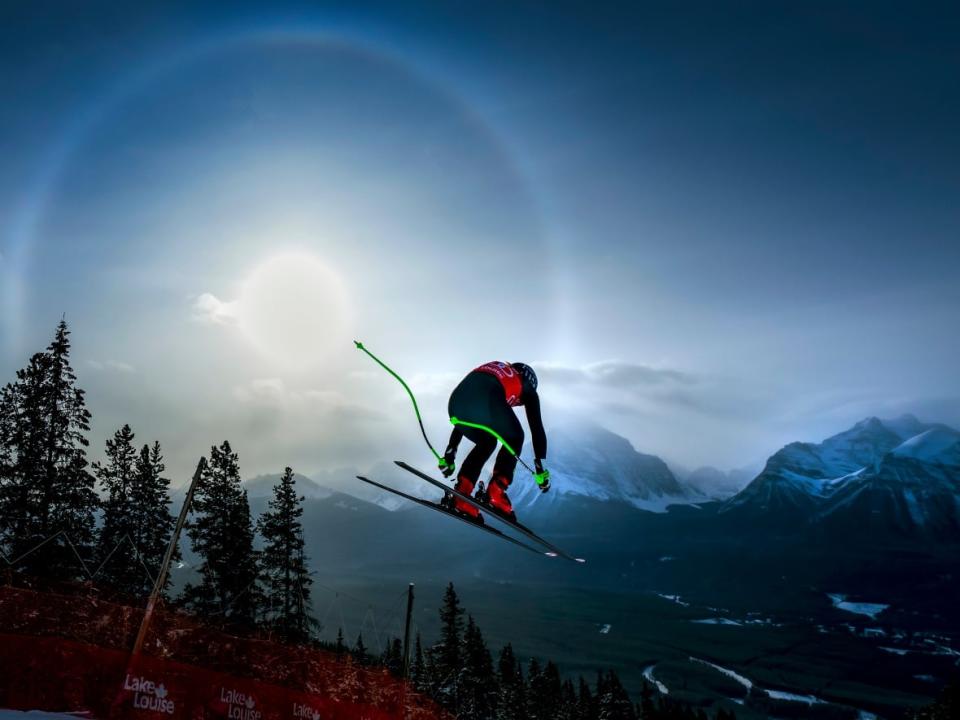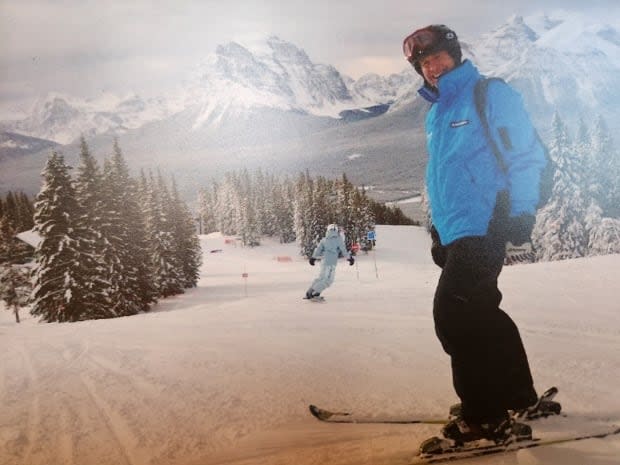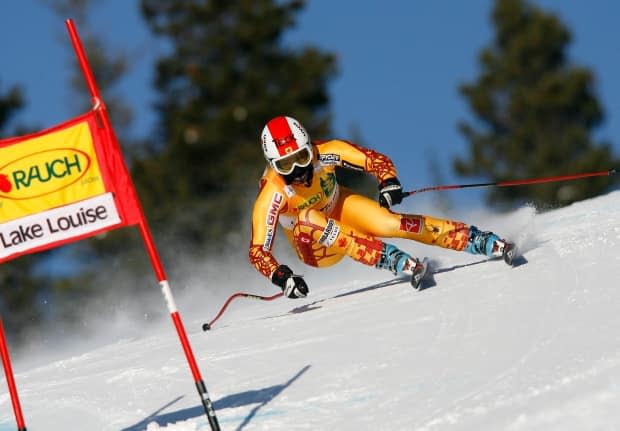It appears World Cup racing has made its last call at Lake Louise

As the last woman pushed out of the gate and began her dash over the frozen white track, the awesome beauty of Lake Louise became undeniable.
Against the backdrop of a royal blue sky and dark green forest, the ski racer whipped down the hill to become miniscule as she was gobbled up by the looming grey of the Rockies which waited patiently below.
It was just one of tens of thousands of thrilling rides that have occurred in this place over the course of its long history with alpine skiing's World Cup.
The sadness lies in the possibility that it may very well have been the last.
Since it first arrived in the 1980's, the World Cup has consistently celebrated the start of winter at Lake Louise. The snow for high-speed racing is guaranteed and while temperatures are often brutally frigid, the atmosphere in Banff National Park is unparalleled.
"It is a giant reunion of the world's ski racing family," said 1992 Olympic downhill champion Kerrin Lee-Gartner, who not only competed at Lake Louise but was CBC's television commentator on races here for 25 seasons.
"From the racers, to the sponsors, families, and volunteers, past and present, we all had a week together united in our passion for the sport," she said.
WATCH | Sofia Goggia earns gold in downhill:
The reality is that financial concerns have made the Lake Louise World Cup races — the only North American stop for female speed racers — too expensive to operate. Those in the know say the business model doesn't compute these days and it all comes down to dollars and cents.
It's nobody's fault. It's just the way of the world.
There will be technical races for women, two giant slaloms, next year in Mont Tremblant, Que., so the World Cup will return to Canada, but the tradition of Lake Louise is, in all probability, facing an interruption or an abrupt end.
And that's a shame.
There is an experience in descending this mountain that amounts to the ultimate trip in the vast, wild, expanse of the frontier. It's the thrill of the moment, one that I was fortunate to experience for 15 years of calling races here.
After the show I would sneak in a couple of runs before the sun went down. I loved the wide-open track beside the race course which went from top to bottom.


On my way down, I'd inevitably look out over the horizon and sing Gordon Lightfoot's Canadian Railroad Trilogy to myself: "There was a time in this fair land when the railroad did not run. When the wild, majestic mountains stood alone against the sun."
Skiing at Lake Louise, was, to my way of thinking, the ultimate Canadian thing to do.
"What a shame that this might be it," said Olympian Larisa Yurkiw, a native of Owen Sound, Ont., who came so close to hitting the podium here in the downhill.
"Lake Louise was our home race but truthfully, every nation felt at home. That's the Canadian effect."
It's true.
The Austrians, the Swiss, the Italians, the Americans, and the athletes from many nations who came to Alberta loved it. They all stayed together in the Chateau Lake Louise and some played hockey on the natural ice rink in the shadow of the Victoria glacier.
WATCH | Canada's Gagnon scores top-10 finish:
They benefitted from the hundreds of volunteers known as the "Sled Dogs," who tirelessly built and groomed the course through the howling winds and endless snowfall.
The superstars of skiing went to sleep at night knowing that, almost without fail, they would be racing the next day.
"It was kind to me. It taught me lessons about competing. It showed me love through the volunteers, fans and supporters. It held my hand along my ski racing journey," said Emily Brydon of Fernie, B.C., who twice raced to the podium in the downhill at Lake Louise.
"As Canadians we rarely get to do what we love in front of the people and country that we love — Lake Louise gave us that opportunity. I will never forget standing in the start gate looking over the majestic and magical valley — taking a moment before kicking out of the gate and laying it all on the line. It always forced me to give pause and be grateful."
The first Canadian woman to win a medal in a World Cup ski race at Lake Louise is Kelly VanderBeek who roared to bronze in the Super G in 2006. She has since spent her time roaming the mountain as a CBC analyst, taking beautiful photographs to capture memories, as well as conducting thoughtful interviews with the racers.

Comfort zone
"Lake Louise played a significant role in my history as an athlete however, it also holds my future," Kelly said as we conversed during this past weekend. "This venue goes beyond results and stats and is now a part of the fabric that weaves my family together. Lake Louise is not a mountain, it is a community with a collective love for skiing that will inevitably evolve."
Marie-Michele Gagnon is the senior member of the Canadian alpine team. On Sunday, at 33 years of age, she took what is most certainly her last competitive trip down the track in the Super G and finished in a season's best eighth place.
In December of 2017 Gagnon was seriously injured in a training run crash at Lake Louise and missed the Olympics the next year. But she has returned to form and grown from the lessons that this formidable mountain has taught her.
"I think everyone, including athletes and volunteers are sad to see this race go," Gagnon said via direct message prior to the downhill. "It has been such a classic over the years and during my entire career of 15 years on the World Cup. It has always felt like home."
Home is important to ski racers. Familiarity and predictability are at a premium in a capricious endeavour where so much is put at risk. If nothing else, Lake Louise and its reliability became a sort of comfort zone for those who gathered to meet its magnificent challenges.
"Can I just go rogue here for a second?" asked my analyst partner, and former World Cup star, Brian Stemmle as we concluded the call of the Super G on Sunday. "I want to thank everyone involved with Lake Louise for being so great. I want to thank the Sled Dogs, and the Net Monkey's, and the course workers, and the people that run the chair lifts…."
Stemmle went on to express his gratitude to so many folks that we nearly ran out of time and he became quite emotional in the process.
I can understand why. We may have seen the end of an era in a jewel of the Canadian west.
Lake Louise has, over the years, become World Cup skiing's rock of ages and in a northern nation, you could always count on winter beginning without fail on this magnificent field of play.

 Yahoo Sports
Yahoo Sports 